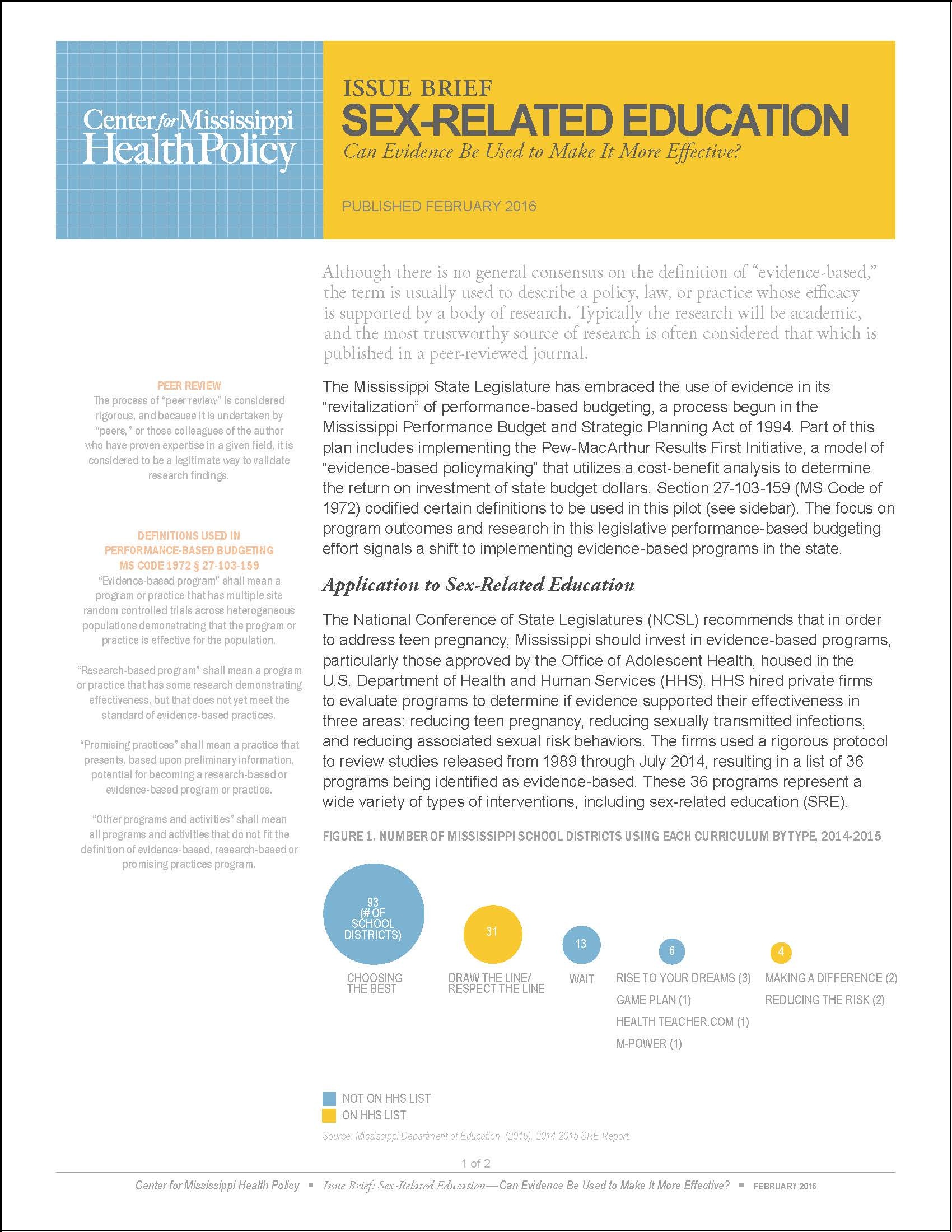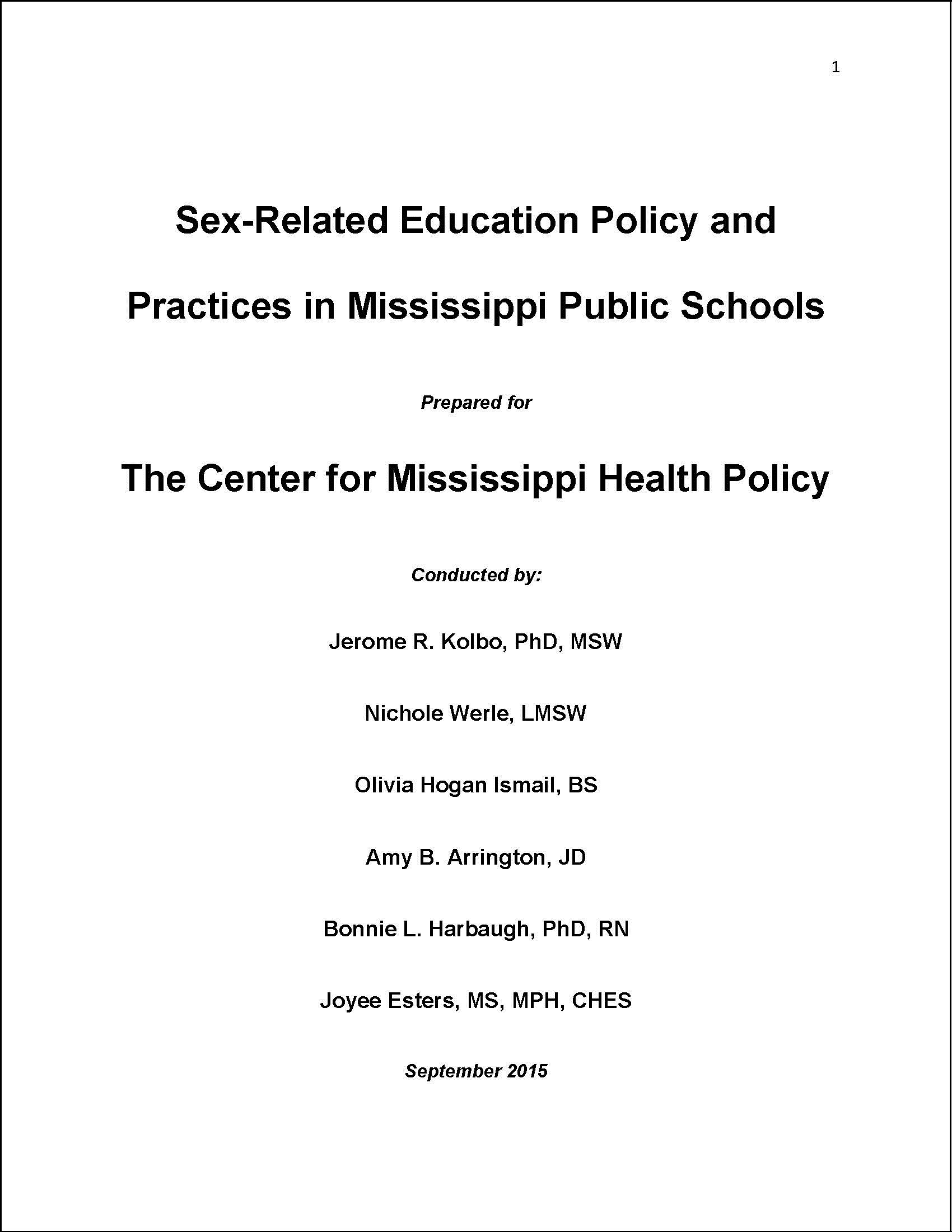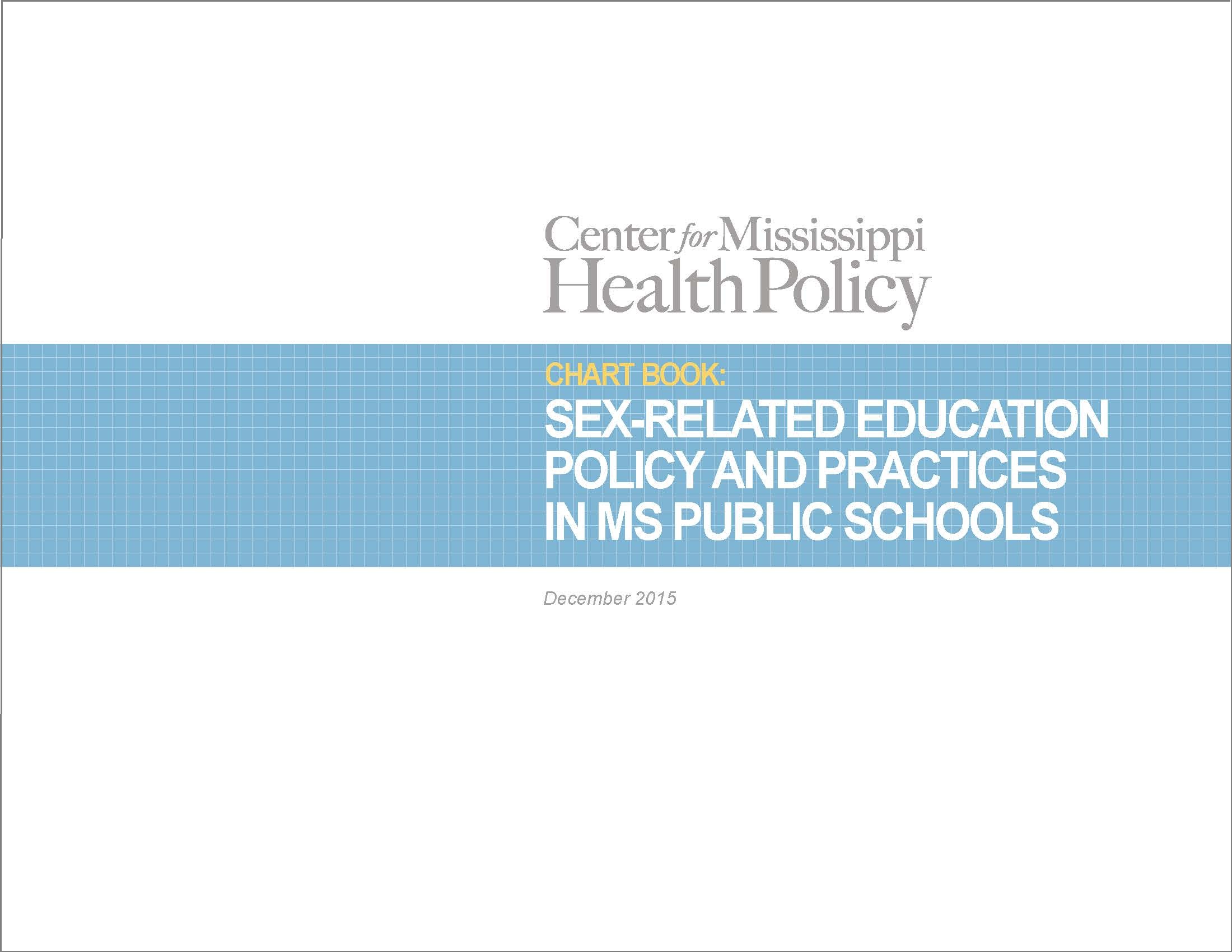Implementing Sex-Related Education in Mississippi Public Schools
Tuesday, December 8th, 2015

In 2011, the Mississippi Legislature enacted a law (§37-13-171 et seq.) that required each local school board to adopt an abstinence-only or abstinence-plus policy on sex-related education (SRE) and to implement an SRE curriculum beginning in the 2012-13 school year. This law is scheduled to expire July 1, 2016, unless the Legislature takes action to extend the act.
Since enactment of the law in 2011, the Center for Mississippi Health Policy has conducted several studies designed to provide information to policymakers on parents’ opinions and on how the law has been implemented in the state. The earlier studies are described at the bottom of this page, and links to copies of issue briefs and reports from these studies are available in the side bar to the left under “Related Links.” The most recent research involves a survey of SRE teachers and is described in more detail here.
Teacher Survey
The Center for Mississippi Health Policy commissioned researchers from the University of Southern Mississippi (USM) to survey and conduct focus groups with a representative sample of SRE teachers to gather information on how the law has been implemented across the state. Researchers asked the teachers about the curricula being taught, the grades in which instruction is provided, barriers and challenges to implementing the policy, and related matters.
Key Findings
- The labels “abstinence-only” and “abstinence-plus” are severely limited as distinct classifications for describing the type of instruction since the majority of each group uses common curricula.
- The total amount of instruction received is diminished by being subject to several limiting factors:
- not all schools teach sex-related education,
- not all students receive written parental permission to participate,
- the range of topics taught is variable,
- when taught, total hours of instruction can be as little as two, and
- some students may be absent at the time of instruction.
- Implementation of sex-related education is very different in middle schools compared to high schools, although the requirements in the law apply equally to both.
*Percent with no students opted in. **Percent of always separated by gender. ***Percent with 8 or fewer hours. ****Percent taught by health education teacher.
- The topics instructors teach are directly related to the topics for which they received professional development.
- The greatest need expressed by teachers was for more professional development.
Copies of the issue brief can be downloaded HERE, and copies of the detailed report can be downloaded HERE.
Can Evidence Be Used to Make Sex-Related Education More Effective?
The Center for Mississippi Health Policy has also produced an issue brief that discusses the State Legislature’s interest in evidence-based policy and how evidence can be applied to sex-related education curricula. While the specific definitions of “evidence-based” may differ among users of the term, the emphasis on demonstrated outcomes based on sound research is a common goal. When applied to sex-related education, there is available research conducted by independent organizations that can be used to evaluate curricula. Requiring this or other credible research to be used in selecting curricula would bring sex-related education in Mississippi more closely in alignment with the move toward evidence-based policy. Copies of the brief summarizing this issue can be downloaded HERE.
Related Studies
2011 Parent Survey
Following enactment of the law in 2011, the Center for Mississippi Health Policy commissioned researchers at the Social Science Research Center at Mississippi State University to survey parents of public school students to determine their opinions and attitudes regarding the content of and methods for delivering sex-related education in the schools. The Center produced an issue brief summarizing the results of the study, and a detailed report on survey findings is also available.
2012 Principal Survey
After schools began implementing SRE in the fall of 2012, the Center for Mississippi Health Policy contracted with the University of Southern Mississippi to conduct a survey of principals in public middle and high schools to assess the early implementation process. The Center developed an issue brief summarizing the results of the study, and a detailed report on survey findings is also available.
Printed copies of the issue briefs or reports are available by contacting the Center for Mississippi Health Policy at 601-709-2133 or by e-mail at info@mshealthpolicy.com.




